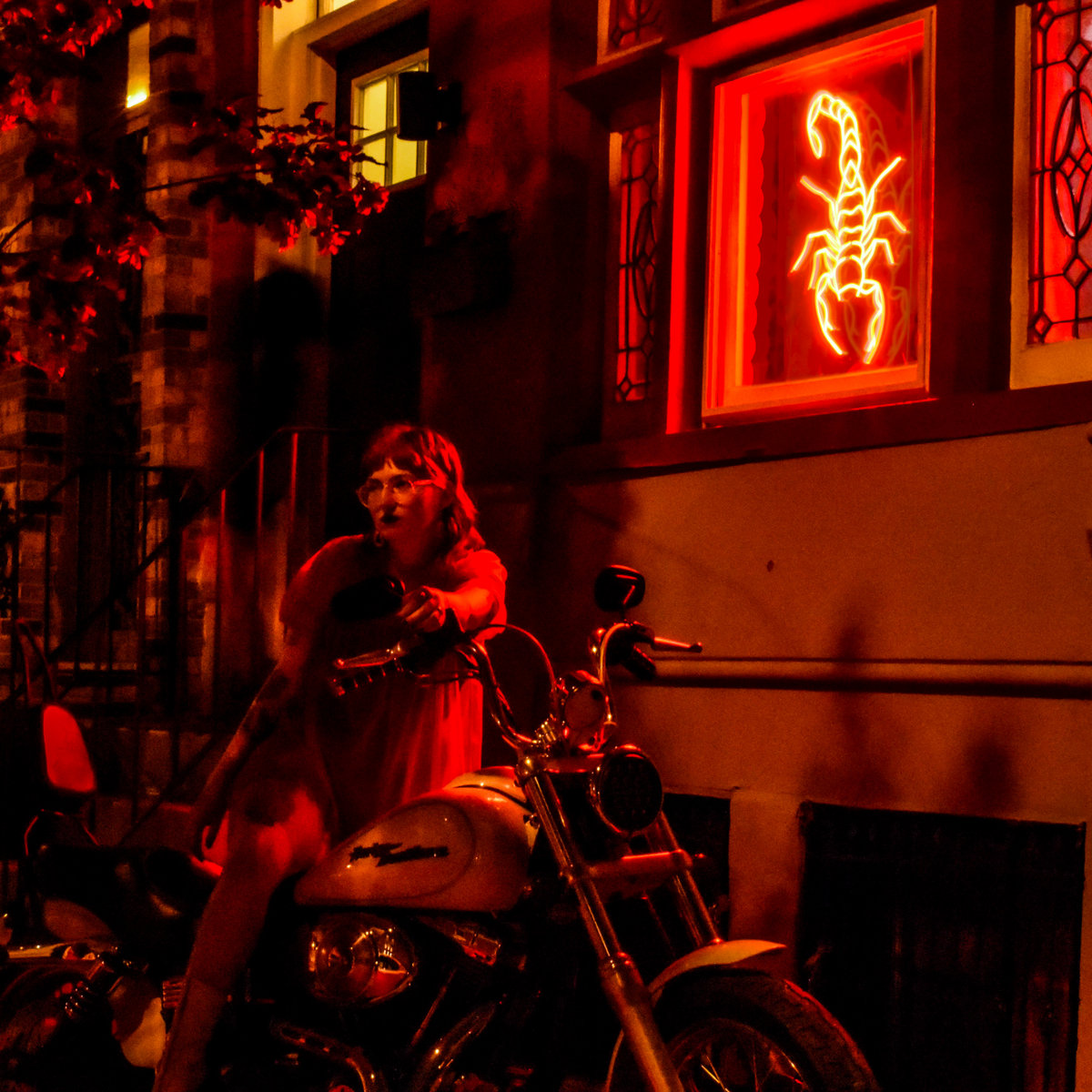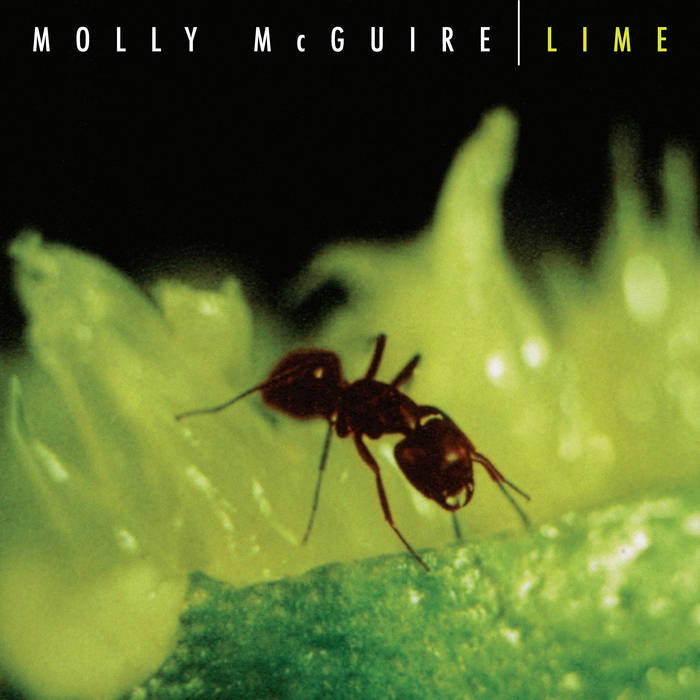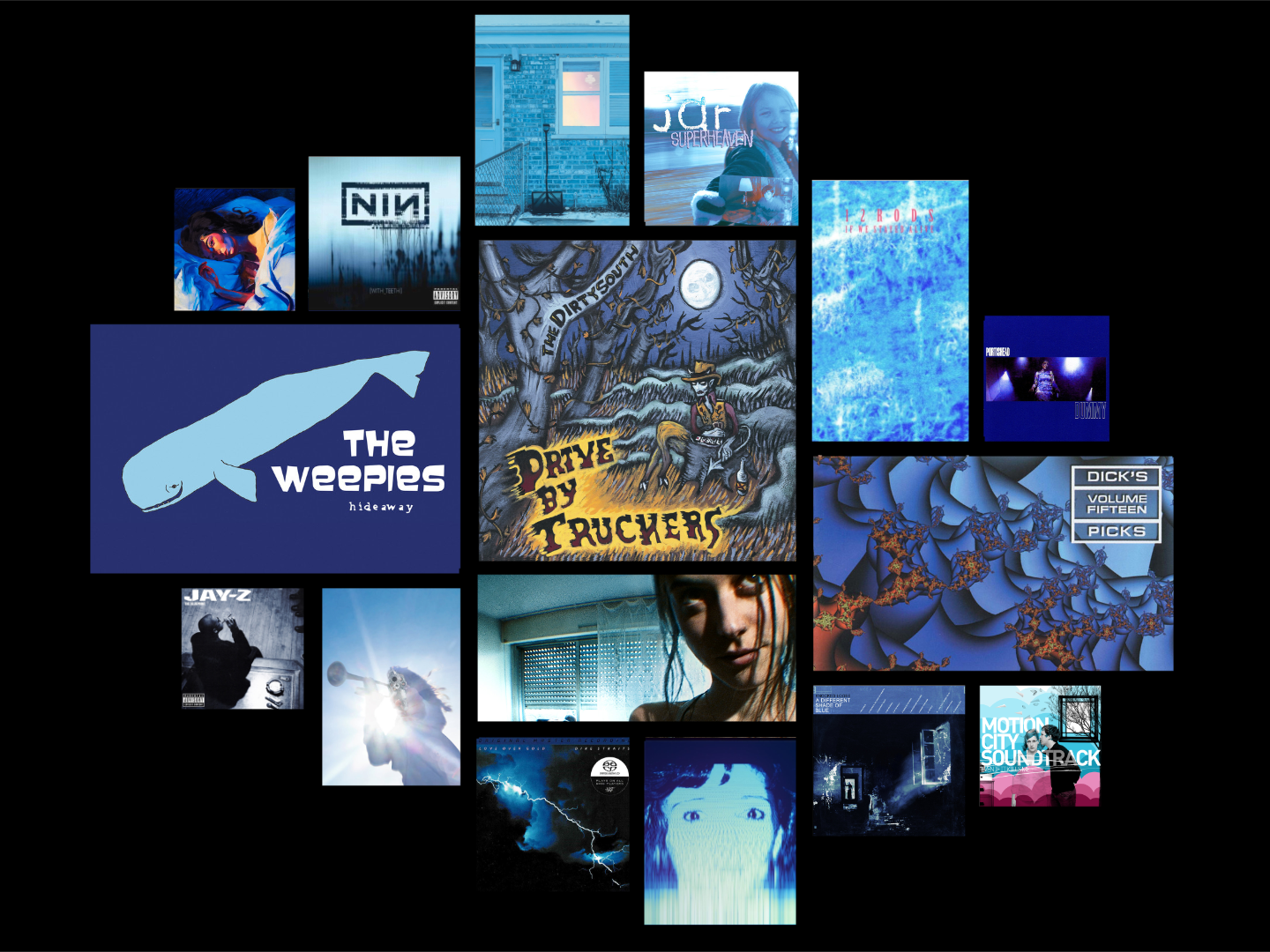The Power of a Name: An Interview with Seth Graham of ---__--____
/INDIANAPOLIS – Some people see music as pleasant background noise. It’s a form of entertainment, trying to get through the workday or running errands in the car. In the case of Night of Fire, the new album from ---__--____ on Orange Milk Records, it is an album that forces the listener to engage within the first 30 seconds as the project unveils a new style of music that brings several different worlds together.
Night of Fire, the newest LP from the experimental group ---__--____, which includes Seth Graham, as well as More Eaze and Recovery Girl, combines midwestern DIY hardcore with abstract classical and ambient tropes.
In its brief 27 minutes, Night of Fire takes the listener on an emotional journey, seldom leaving time for respite. It features discordant strings, screams, and growls, as well as beautiful clean melodies, all of which come at different points within the album’s first 30 seconds. By the fifth track of the album, the listener is exhausted, only as the album once again builds up its intensity to an apex.
The new album is the group’s follow-up to the critically acclaimed 2021 release The Heart Pumps Kool-Aid. Originally inspired by slowcore bands like Codeine and Bedhead, the new album morphed into a mix of slowcore and ambient, featuring Zao-style vocals. While there are some similarities between the group’s first two albums, Graham’s goal is to have a “clear distinction” between each release.
“I think it’s genuinely compelling. You can hate it, and you can shit on it, and that’s fine. But I don’t think you can say it sounds like something else,” Graham said. “That’s my goal. I feel like if I just pursue what I love and it lands there, then in my mind, I’m successful.”
Swim Into The Sound spoke with Graham about the newest release from ---__--____, what inspired the sound of this album, what fans should expect out of the act’s live show, and where the project’s name came from.
Follow-up to The Heart Pumps Kool-Aid
Graham said that the process of following up on the act’s 2021 debut started with a metal show near Dayton, Ohio.
“I really like metal, and I’ve been really influenced by hardcore since I was a teenager,” Graham recounts. “I went to a lot of Christian hardcore shows because my parents were super religious… It was just a part of that culture in northern Ohio in the mid-to-late 90s when I was a teenager, and that stuck with me for a long time.”
Even though metal inspires him, Graham wanted to create his own version of it when playing live, so he called upon Galen Tipton, aka Recovery Girl, to help. Ideally, Graham wanted his version to sound like early 2000s Christian hardcore, specifically like “Where Blood And Fire Bring Rest” by Zao.
After the project’s Dayton show was over, Graham sent the music to Mari Maurice, the Brooklyn-based artist who goes by More Eaze, to see if this was something she could work with.
“I’m not relying on Mari to… make the song fire,” Graham explained. “I don’t want to put that weight on her, so I try to make it so that even if it’s released as it is, I would be pretty happy with it and then hope that she can enhance it, which she does wonderfully. She does enhance it quite a bit.”
Sound and inspiration for Night of Fire
Even as Graham was preparing for the one-off show, he said the idea of a full-length album was already on his mind.
“I liked the juxtaposition I was making between classical and hardcore,” he said. “I love, like you probably know, all kinds of music. But I love classical/avant-garde stuff. I always felt like people during the late 50s, 60s, and 70s, maybe into the 80s, avant-garde classical was such a hotbed of interesting stuff because it feels like poetry a little bit. You don’t meet a poet who wants to be famous. They just kind of make stuff, and they present stuff. I feel I just love that, you know?”
“I was sort of mixing hardcore and some classical and some kind of tropes of ambient music… Noise and hardcore equals it being kind of heavy, and I wanted it to be unbearably emotional and unbearable. [I wanted it to be] a bit unlistenable, if that makes sense. It’s listenable, I think, but I feel it really rides a line where I’m not sure if I want to listen to this anymore, but also, ‘I kind of love this.’”
Through his music, Graham said that he likes to draw from where he lives, taking inspiration from his experience growing up in the Midwest and approaching the album like a film.
“People sort of coming in and out of Christianity is really interesting to me because I was part of that growing up,” he said. “I’m not religious at all, but there’s just something really interesting about Midwestern America. A lot of people grow up really religious in various ways, and then they kind of depart from it when they’re younger, and then they kind of return to it. There are very different forms that it takes with people, and then (to see) how that affects art, I think, is really interesting.”
But while he was recording the songs that developed into Night of Fire, Graham said he takes an “emotion-only” approach, not trying to analyze it as he goes. If the songs make him feel something, he believes it will make others feel something as well. The album’s closer, “When God Released Me,” showcases that emotion-based approach perfectly, serving as the climax to the album as a whole.
“That song came together really really fast, and I was crying when I was working on it because I was so moved by it,” he said. “I was literally editing while I was crying and re-listening to it, and I was like, ‘This is it. This is good. I like this. I love this.’ It was just invoking that feeling, but why, I didn’t really know or care. I just try to abandon all analytics when I’m doing it.”
Now that the album is recorded, Graham said he learned things about himself while he was making it.
“Personally, it made me feel that all the therapy I’ve been through for depression and trauma throughout my life was just being crammed into a record,” he said. “That’s one thing I didn’t aim to do, but I think it happened.
“Even though it was flushed out when I was making it. I just abandoned any kind of worry about it, about how it was going to go. I just kind of let go when I was making it.”
Live sets for ---__--____
Through the various ---__--____ projects, Graham said he aims to make something that brings the question forward of whether or not they would be able to pull it off in a live setting.
“I want to create something like Night of Fire where it’s like, what the fuck is this?” Graham said. “Can you even do this live? I don’t give a shit. I don’t give a fuck. What I want is just to make music like this.”
Graham said he doesn’t relate to having a spiritual-like experience at shows but realized that people want an experience when they come to a show. Because of this, ---__--____ performances consist of a film being shown in the background while Maurice plays violin and strings. During the show, Graham lies down on the floor. It’s a similar approach to what Graham did at the initial concert in Ohio before he created Night of Fire.
“People want to be like, what just happened? I can present that, and I don’t have to play a damn fucking thing,” he said. “We’re all just going to lay there while this bizarre film plays with this hardcore classical music. We did this at a local bar in front of three metal bands and a crowd, and it felt deeply satisfying to me. This is what I wanted to present. This is what I wanted to do, and I didn’t really care. I don’t care at all about how anyone felt about it. This [was] liberation for me. I felt liberated from the burden of showing off my chops. I don’t have chops. It was not in the cards for me, but I shouldn’t be banned from playing music. I play music. I make art, and this is what I do.”
“I love it because I feel like when people come to see it, they’re like, ‘I’ve never seen this. I’ve never heard this. What the fuck is this?’”
Origin of the ---__--____ project name
When Graham and Maurice created the group, Graham said he didn’t initially want to name the project, stressing that it did not feel right to just use the two of their names as the project's name. At one point, Graham typed characters into a chat box, which ended up becoming the band’s name.
“I hate names,” he said. “I feel like names are all signifiers of what clan you belong to or what it’s all signaling. Words themselves are signals and the combination of words or how the word is just presented. I didn’t want to signal anything. I wanted there to be (a feeling of) ‘I’m not sure what I’m getting into.’ I wanted that, so it almost opens you up a little bit.”
Graham sees the name ---__--____ as a rebuke of sorts, stressing that it’s okay to be recognized, but the capitalist-driven narrative of fame has an “awful side to it.”
“If we have this name, we can’t go far. No one’s going to give a shit. No one’s going to go through the name, if that makes sense. A lot of people are like, what band is it? I don’t know,” he said. “I also like the idea of the album name becoming the band name - so then our name kind of changes.”
“I’m trying to force you to engage… I feel like if I saw it, my curiosity would be peaked. But maybe my curiosity is too easily peaked.”
---__--____ is performing as part of a free Orange Milk Records showcase in Yellow Springs, Ohio in mid-September. Click here for more information about the free show at Antioch College.
David Gay got into journalism to write about music but is now writing news and political articles for a living in Indiana. However, when he got the chance to jump back into the music world, he took it. David can be found on Twitter and Instagram at @DavidGayNews. (Just expect a lot of posts about jam bands.)












